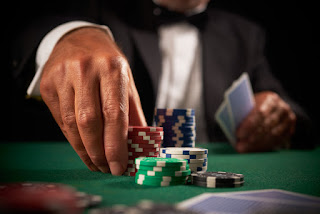 Tests have always been a way to measure aptitude, skills, and understanding in school.
However, they are also gateways for other aspects of our lives: getting a driver’s license, becoming a citizen, being hired for a job, or receiving a professional credential.
Tests have always been a way to measure aptitude, skills, and understanding in school.
However, they are also gateways for other aspects of our lives: getting a driver’s license, becoming a citizen, being hired for a job, or receiving a professional credential.Test-taking skills are rarely taught, but they can make a big difference in how well an individual does on an exam. Here are three areas where you can improve your skills and improve your test performance.
1. How do you prepare yourself for the test?
• Do you know what to expect? Knowing the type and scope of the test allows you to focus and organize your thoughts.
• Have you kept up with the reading and notes for the class? Keep up with assignments and always be present for the exam review.
• Do you have the supplies needed for the exam: calculator, pencils, pen, and paper? Always come to the test prepared.
• Are you alert and focused? A good night’s sleep and nutritious breakfast will help you think clearly. • Are you feeling anxious? Do some deep breathing. Is your mind racing? Write down your thoughts and put them away for later. This will clear your mind and help you concentrate.
2. How do you prepare and present your knowledge?
• Do you answer study questions and make notes during in-class reviews? These activities often present a road map for the test that follows.
• How do you manage the testing time? Answer questions you know first and then go back to those you are unsure of. If an essay is part of the test, make sure you get to the point quickly and provide adequate support.
• When studying, do you look for relationships and results? Try to see the “big picture” and put the material in a context that you can remember, and that makes sense.
3. Do you have an accurate idea about your performance on the test?
• Did you study the right material?
• Were you able to provide detail and support?
• Did you manage your time well?
Evaluating your performance each time you take an exam will help you identify your study weaknesses. Then, you will be able to do a better job on those areas when you prepare for the next test.
Study Skills, Life Skills, and Much More
When you choose the rehab programs for young people at Hope Academy, you open the possibility for a whole new life. From detox to treatment for the mental and emotional troubles that brought on the addiction, our team guides individuals to recovery. Job prep and college admission round out the possibilities of the Hope Academy program. Call 866-930-4673 to learn about insurance coverage and to enroll your loved one today.











